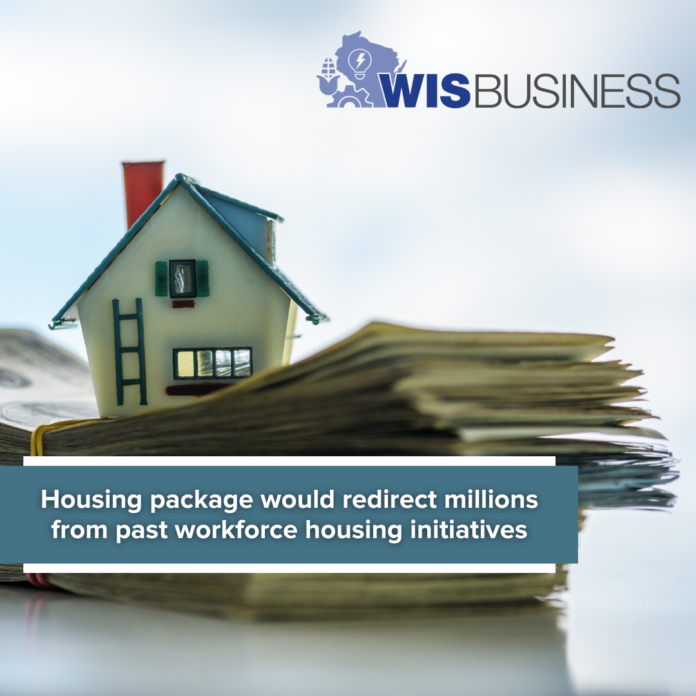A series of bills aimed at addressing what lawmakers called a “crisis” in the lack of workforce housing would redirect tens of millions of dollars from past workforce housing initiatives.
Wisconsin in 2023 set aside $525 million for affordable housing development loans aimed at growing the state’s housing stock and getting new homebuyers into housing. But some of the programs included haven’t seen significant use two years down the road.
The last state budget set aside $100 million for the main street housing rehabilitation revolving loan funding program. Rental property owners could get up to $20,000 per rental unit for upgrades on apartments above retail spaces. But Sen. Dan Feyen during an Assembly Housing and Real Estate Committee public hearing yesterday said only $19 million of that has been doled out so far.
The Fond du Lac Republican is proposing in AB 455 to take $10 million of the original funding to create another program that would reimburse developers $50,000 per apartment unit to convert them into condos.
“By converting multifamily rental units into owner-occupied condos, we can turn renters into owners, allowing them to build equity in their home,” he argued.
Dem Rep. Ryan Clancy, of Milwaukee, raised concerns the bill wouldn’t allow condominium associations to access the funds, but Feyen said he’s “always open to ideas.”
“We’ll take a look at whatever comes before us and make a decision on it,” he said.
AB 454 would take another $10 million out of the money set aside in the last budget and reallocate it to create another home loan program. The new program would provide up to $60,000, or up to 25% of the home’s value, to first-time homebuyers who earn as much as 100% of the area median income.
But the League of Wisconsin Municipalities did raise some concerns over a bill that would require local governments to allow homeowners to build accessory dwelling units, with some restrictions.
Government Affairs Director Toni Herkert said stakeholders she’s talked with would like AB 449 to clarify that new ADUs are only allowed to be built onto existing detached structures and not as new, standalone detached structures.
Other bills in the package would:
- Clarify that the commercial building code updated in August applies to public buildings, structures or places of employment if the plans for them are submitted for compliance no later than April 1, 2026;
- Enable cities and villages to establish workforce housing tax increment districts, allowing a portion of the tax increment from new homes to be used to offset infrastructure costs; and
- Establish mandatory rezoning for certain requests related to residential development and allowing the duration of a tax increment district to be extended for up to two years for housing stock improvement.







